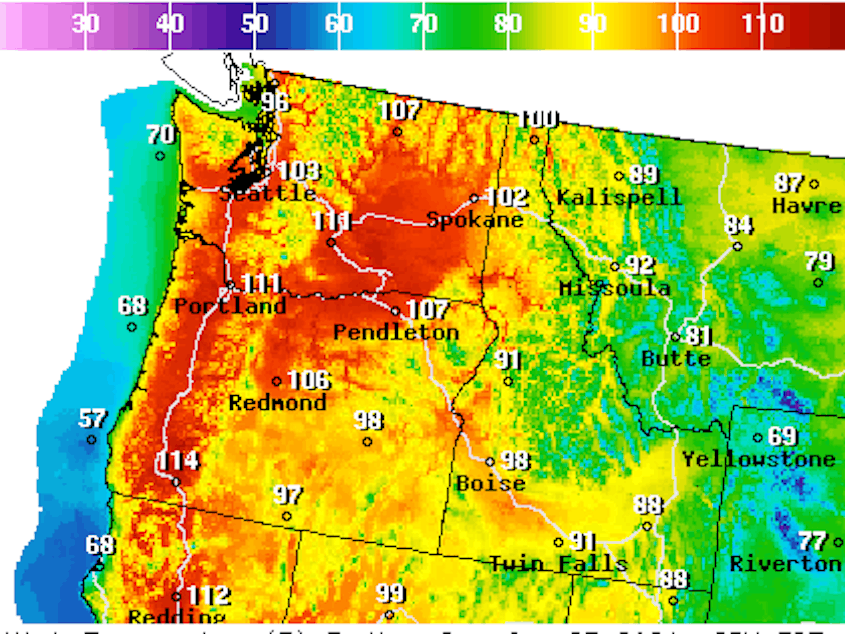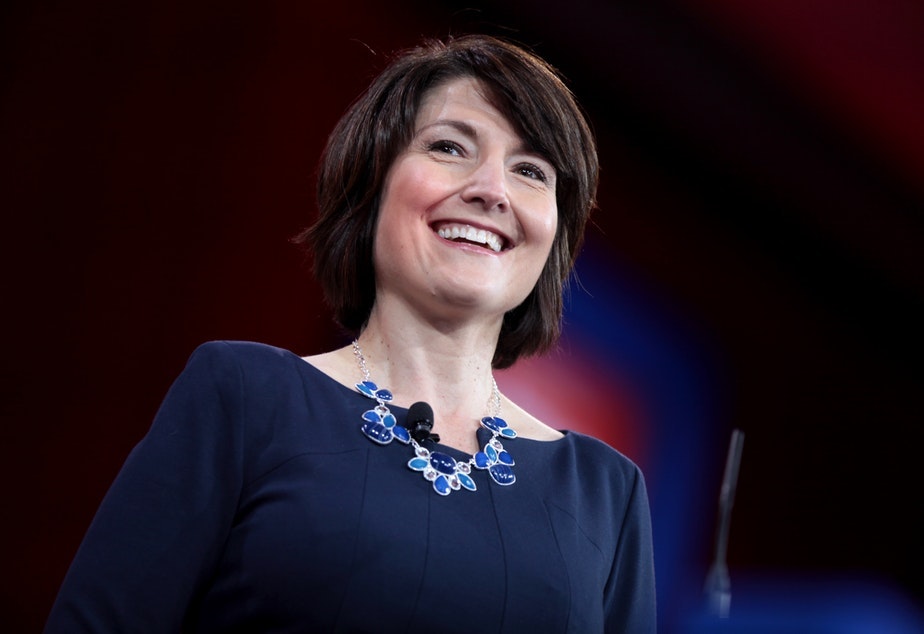NW heat wave sparks skepticism of new Conservative Climate Caucus

There’s broad agreement that the record-setting heatwave that struck the Pacific Northwest this week was yet another symptom of our changing climate.
Yes, it was especially unusual — with highs reaching 25 to 50 degrees above average. But these “temporary” crises are becoming more like, as Governor Jay Inslee described it this week, a “permanent emergency.”
And with the climate emergency in mind, dozens of Republicans in D.C. came together about a week ago to form the new Conservative Climate Caucus. Washington state Representatives Dan Newhouse and Cathy McMorris Rodgers are among them.
So, what did they have to say about the heat and what it represents in the grand climate scheme?
"Well, you didn't see them connect climate change to the heatwave," says Zack Colman, climate and energy reporter for POLITICO. "They made a passing mention that heatwaves were happening, but there was no linkage between climate change and those heatwaves."
Colman reached out to the Conservative Climate Caucus members for their thoughts on that link. He got silence.
Newhouse's office did not respond to his requests for comment. Fellow northwesterner Rep. Cliff Bentz of Oregon declined comment.

And McMorris Rodgers, speaking at a committee hearing on Tuesday, criticized Democrats' climate proposals as expensive measures that could "take us backwards to a time before reliable electricity and modern conveniences."
So, what is the goal of the Conservative Climate Caucus if not to respond to climate-related emergencies?
Colman says the members have acknowledged they need to start thinking about climate change from a Conservative, free-market perspective — an approach free of targets and mandates.
But they're starting this process when the region is already burning.
"There's kind of an acknowledgement that Republicans don't really know how to talk about this yet. They're just learning," Colman says, citing sources in D.C. "But it's been years of them trying to learn. This is not the first time a group of Republicans have come together and said 'we need to get better on this.'"
Sponsored
Now, Colman may be a "paid cynic" as a journalist, but there is a more suspicious view of the caucus' intentions on Capitol Hill.
"The cynical view on this ... is that this caucus was created to get to suburban voters who care about climate change," he explains. "Suburban voters and young Republican voters think that this GOP is lost on climate change. So, I think that there is a voter imperative for the party to figure out how to be good on this issue."
And that's good news if there's any hope of taking effective corrective action.
"You know, not any one party has a monopoly on the good solutions," Colman says. "We need it all when we're facing such a daunting task ... like climate change."




